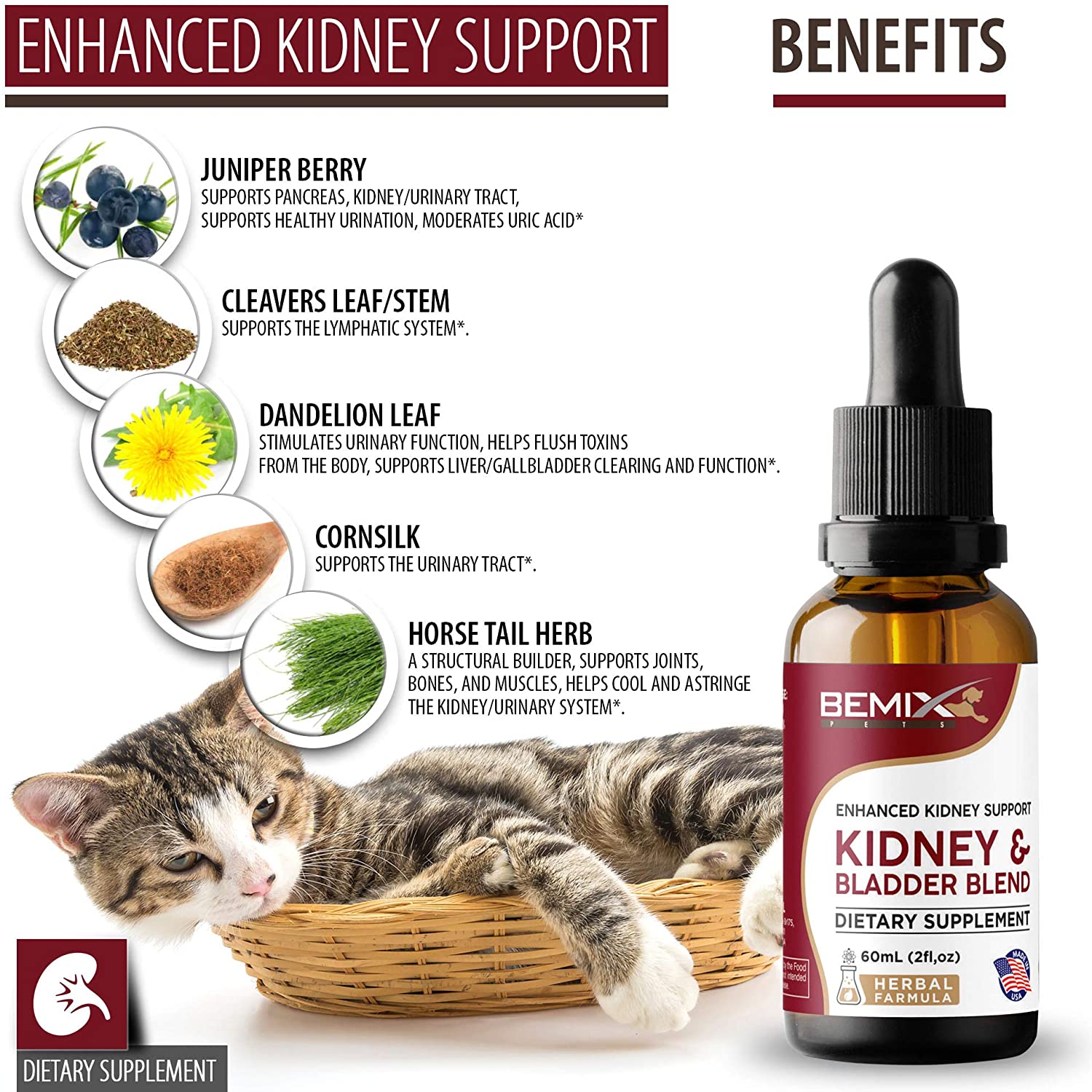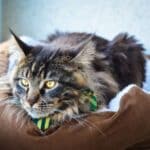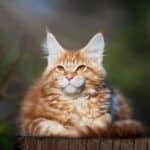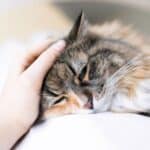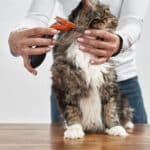Maine coon is a friendly and lovable breed of cat. Just like humans, these lovely creatures are also susceptible to several kidney diseases. Kidney is a crucial organ that plays a number of vital roles in a cat's body.
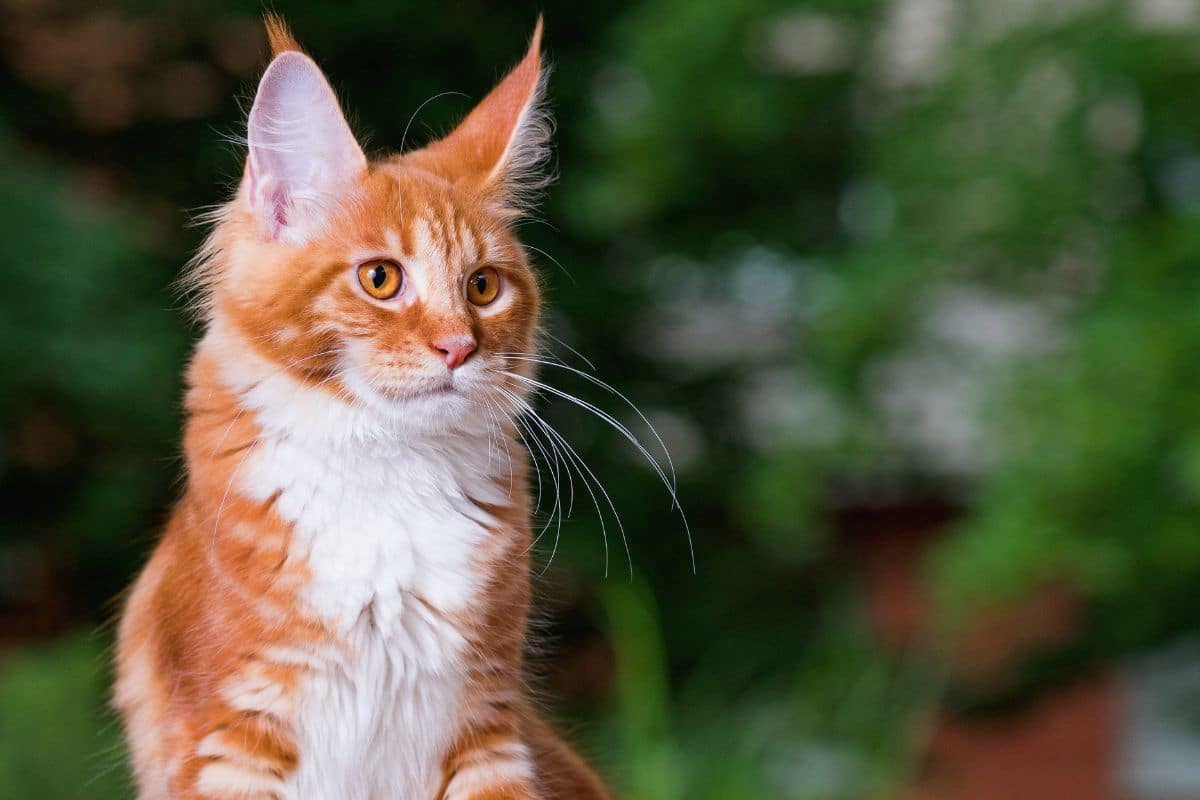
For example, filtration of blood (cleaning of blood out of waste substances), regulation of blood pressure, production of hormones & vitamins and acid-base balance. So, this is the responsibility of every cat owner to take care of the renal health of his/her beloved furry friend.
Here we will discuss some important kidney diseases which are common in Maine coon cats:
Jump to:
COMMON KIDNEY DISEASES:
Polycystic kidney disease (PKD)
Description: As the name indicates, “polycystic”. It means in this disease, a number of fluid filled cysts can be observed on one or both cat kidneys. These fluid filled cysts grow larger as the Maine coon cat grows.
Nature of disease: Hereditary (This disease runs in genes. It occurs due to autosomal dominant gene abnormality)
Clinical manifestation: Cat doesn’t show any symptoms unless she reaches the age of seven years. But signs of (PKD) are somewhat similar to chronic renal failure. Important key signs have been enlisted below:
1) Frequent urination (polyuria)
2) Weight loss
3) Increased thirst(polydipsia)
4) Poor coat
5) lethargy
6)Anorexia (Cat becomes off feed)
7) Vomiting (emesis)
Diagnosis: This is difficult to diagnose this condition until the cat reaches the age of seven years. But your vet can help you in diagnosing this condition by using ultrasonography.
Treatment: Generally, treatment includes surgical removal/flushing of fluid filled cysts. Additionally, there are various special diets and medications which aid in reducing the growth of cysts.
Kidney stones:
Description: Urinary stones/calculi form due to accumulation of crystals which are normally found in cat’s urine and expelled out of the body through urine. Urinary stones can be formed anywhere in the urinary tract of a cat. Generally, cat stones are made up of Struvite, calcium oxalate etc.
Causes: Diets having high levels of minerals, medications, urinary tract infections.
Clinical manifestation:
1) Hematuria (urine in blood)
2) Frequent urination but urinary obstruction can occur, if stone blocks the passage.
3) Vomiting
4) Depression
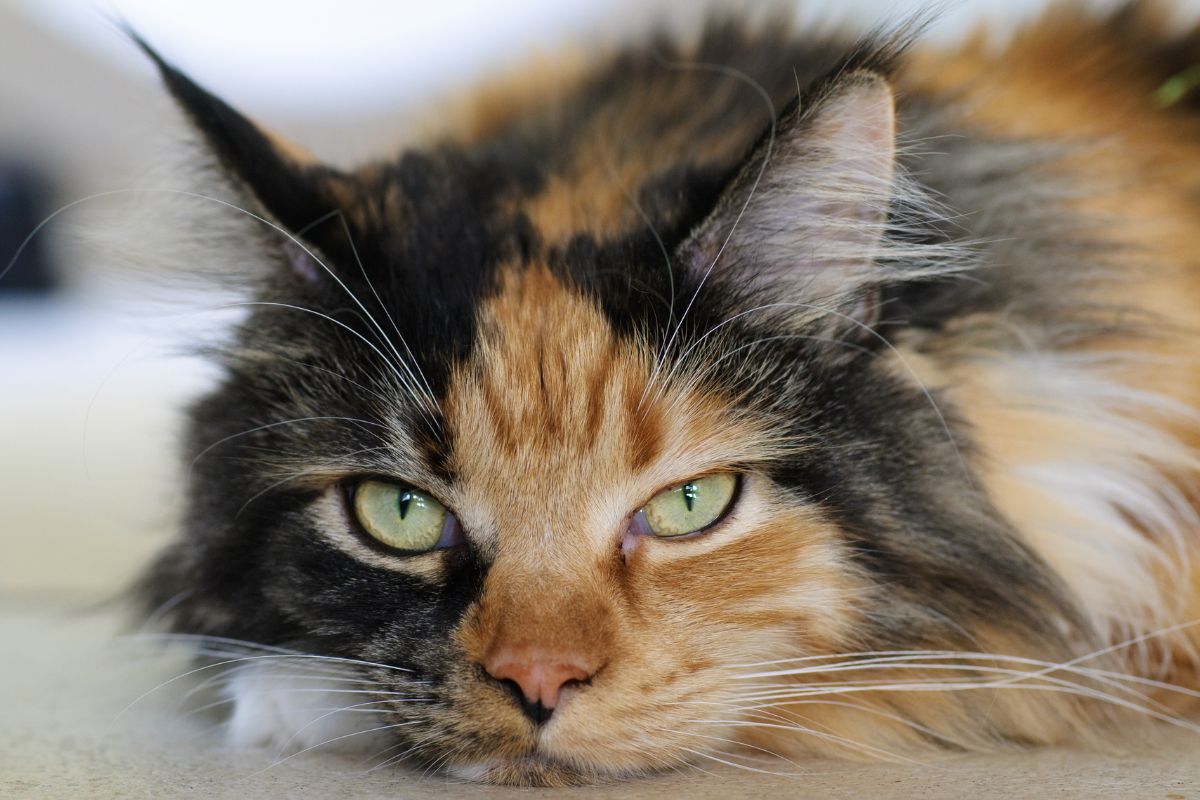
Diagnosis: A vet can make a diagnosis on the basis of clinical symptoms and using ultrasonography or x-ray.
Treatment: It depends upon the severity of the case. Surgical removal of stones can be performed or your vet can go for lithotripsy. Various antibiotics can also be given to deal with the underlying infections. Furthermore, encourage your cat to drink a lot of water, try to stop feeding vitamin & mineral supplements and give kidney friendly diets to your beloved cat.
Acute renal failure (ARF)
Description: This type of renal failure occurs over the matter of a few days to week. Cats of all ages are prone to this.
Causes: renal infections, poisons, toxins, human medications, disinfectants, urinary blockage( due to renal stones) and cardiac failure.
Clinical manifestation:
1) Frequent urination
2) Vomiting and diarrhea
3) Dry and dull skin coat
4) Halitosis (bad breath, usually ammonia like odor)
5) Ulcers in mouth
6) Drinking plenty of water
7) General body weakness and depression
Diagnosis: Timely diagnosis can save the life of your cat. Remember, acute renal failure can be reversed, if diagnosed timely. X-ray, ultrasonography and other KFT (kidney function tests) can be performed to reach the exact cause.
Treatment: IV fluids, surgical removal of stones (if blockage reported), give plenty of water to your cat; introduce a kidney friendly diet (low in minerals and high in omega-3 fatty acids and vitamin D). Provide your cat a stress free environment and stay in touch with your vet.
Chronic renal failure
Remember, chronic renal failure develops over a period of months to years. Old aged and already diseased cats are more prone to this. Chronic kidney problems are difficult to deal with.
Suggestions:
Being a responsible owner, you should monitor the renal health of your cat. Provide your cat a nicely formulated diet that takes care of the renal system. Ensure that your cat is taking enough water. Contact your vet, if you find any abnormality in your feline buddy.
Product recommendation:
We recommend Bemix Pets Enhanced Kidney Support which contains the following herbs : juniper berry, cleavers leaf/stem, dandelion leaf, cornsilk, horse tail designed to support cats kidney health. You can find it on Amazon here.
REFERENCES:
| Lyons, L, Biller, D, Erdman, CA. Feline polycystic kidney disease mutation identified in PKD1. J Am Soc Nephrol 2004; 15: 2548–2555. |
DiBartola, SP, Rutgers, HC, Zack, PM. Clinicopathologic findings associated with chronic renal disease in cats: 74 cases (1973–1984). J Am Vet Med Assoc 1987; 190: 1196–1202.
KEY WORDS (KIDNEY STONES IN CATS) (POLYCYSTIC KIDNEY DISEASE) ( CAT'S RENAL SYSTEM)

